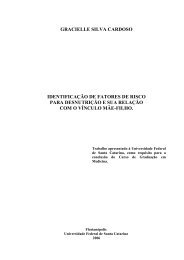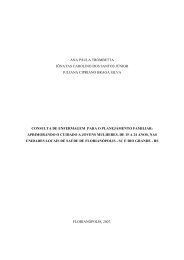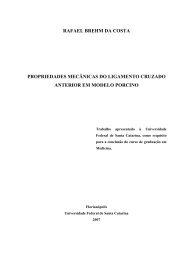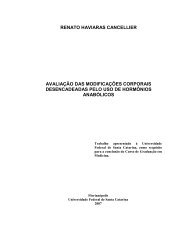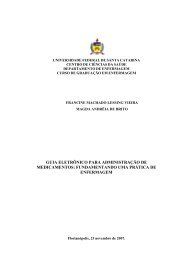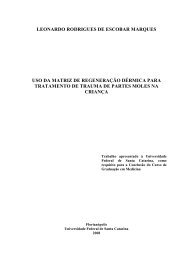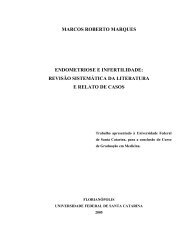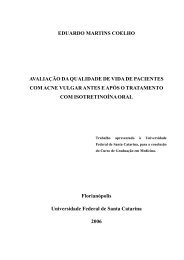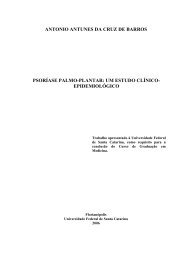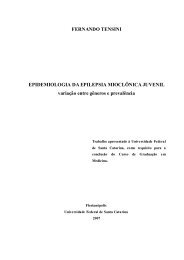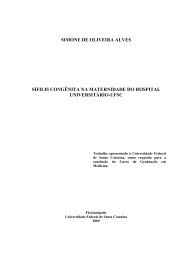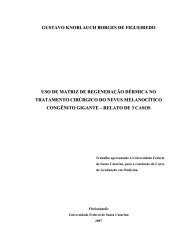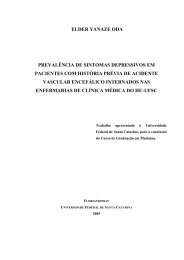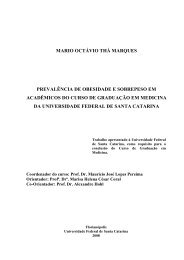TCC Felipe de Paula Maçaneiro - UFSC
TCC Felipe de Paula Maçaneiro - UFSC
TCC Felipe de Paula Maçaneiro - UFSC
You also want an ePaper? Increase the reach of your titles
YUMPU automatically turns print PDFs into web optimized ePapers that Google loves.
vi<br />
ABSTRACT<br />
Objective: Analize time trends in cancer mortality in Santa Catarina (SC), Brazil, during the<br />
period of 1996 to 2005.<br />
Method: Mortality data by year, age, sex and un<strong>de</strong>rlying cause of <strong>de</strong>ath were analized. The<br />
simple linear regression technique was used to evaluate the trend of standardized <strong>de</strong>ath rates<br />
(direct method, using the population of SC in 2007 as the standard).<br />
Results: The most frequent sites of tumors in Santa Catarina resi<strong>de</strong>nts, from 1996 to 2005,<br />
were lungs, stomach and colon/rectum, in both sexes; consi<strong>de</strong>ring men, esophagus and<br />
prostate apear; and in females, breast and cervix of the uterus. Standardized <strong>de</strong>ath rates<br />
presented a rising trend for all malignant neoplasms in both sexes, as did cancer of prostate<br />
and esophagus in men; and <strong>de</strong>creasing trend in mortality rates due to cervix of the uterus<br />
cancer in women. The standardized <strong>de</strong>ath rates of breast cancer presented a stable trend. Still,<br />
there was a <strong>de</strong>creasing trend in those rates by stomach cancer in both sexes.<br />
Conclusions: Consi<strong>de</strong>ring the most frequent types of cancer, with the biggest <strong>de</strong>ath rates, we<br />
can note that most of them are related to environmental factors or related to a constant<br />
hormonal stimulation. They are previsible types of cancer, that when they cannot be<br />
prevented, can be <strong>de</strong>tected in earlier phases by structured programs, that improve the<br />
situation.



